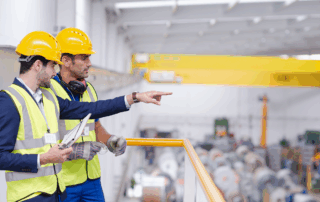As warmer weather continues, the smell of grilled food fills the air.
Grilling Safety Awareness
According to the National Fire Protection Association, nearly 9,000 home fires involve grills each year. The leading factors contributing to grill fires overall were failure to clean, leaks or breaks, leaving the grill unattended and having the grill too close to something that could catch fire. Failure to clean and leaks or breaks were more commonly seen in gas grill fires than in fires involving solid-fueled grills.
Consider the following grilling safety tips:
- Do not let children or pets play near the grilling area until the grill is completely cool.
- Place your grill at least 3 feet away from other objects—including your house, trees and outdoor seating.
- Do not use your grill directly below your roof or any low-hanging tree branches, as these items could catch fire.
- Only use starter fluid for barbecue grills that use charcoal. Do not use starter fluid for gas grills.
- Before using a gas grill, check the connection between the propane tank and the fuel line to make sure it is not leaking and is working properly.
- If you suspect that your gas grill is leaking, turn off the gas and get the unit fixed before lighting it. Never use a match to check for leaks.
- If your propane grill’s flame goes out, turn off the grill and the gas. From there, wait at least five minutes before relighting the grill.
- Do not bring your grill into an unventilated or enclosed space—such as the garage or inside of your home. This is not only a major fire hazard, it is also a carbon monoxide hazard.
Take Steps to Avoid Burns
- Not only can grills start fires, they can also cause burns. That’s why it is important to exercise caution as you flip foods on the grill to ensure your hands and arms do not get burned.
- Specifically, be sure to use long-handed utensils to help keep your hands at a safe distance from the flames. Lastly, store baking soda near the grill to quickly put out potential grease fires.
Contact INSURICA for more home and safety tips.
This article is not intended to be exhaustive nor should any discussion or opinions be construed as legal advice. Readers should contact legal counsel or an insurance professional for appropriate advice. © 2022 Zywave, Inc. All rights reserved.
About the Author
Share This Story
Related Blogs
OSHA Announces Top 10 Violations for 2025
OSHA recently revealed its top 10 most frequently cited standards in the 2025 fiscal year using preliminary data. This information is valuable for businesses of all kinds, as it helps them identify common exposures that affect their workforce and gives them the information they need to plan their compliance programs.
Cyber Hygiene for Schools: Teaching Digital Safety to Students
Cyber hygiene for schools is more important than ever in today’s digital learning environment. Teaching digital safety to students not only protects their personal information but also strengthens overall school cybersecurity. With increasing online access in classrooms, cyber hygiene for schools must become a routine part of curriculum planning and student behavior expectations.
Mental Health Benefits Go Mainstream: What Employers Need to Know
Once considered a niche offering or a reactive add-on, mental health benefits have now moved to the center of the employee experience. In 2025, nearly half of U.S. employers offer some form of mental health support beyond traditional EAPs—a sharp rise from just 30% in 2023. This shift isn’t just cultural; it’s strategic.








